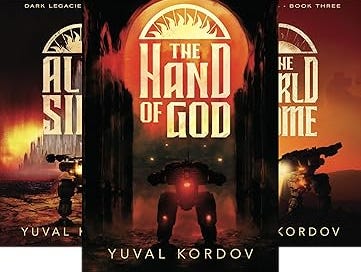Review: Sci-Fi for Life: Yuval Kordov's Dark Legacies
Reviewing the double-post-apocalypse series through the lens of consistent life ethics. A cross-post.
Science fiction isn’t the place you might expect to encounter consistent life ethics — when it isn’t escapist, it can tend towards relativism or even nihilism. But it’s a genre as diverse as its authors, and even from the beginning, Frankenstein (often considered the first sci-fi novel) tackles a number of pro-life themes, including the “abortion” of the would-be bride of Frankenstein’s Creature, the injustice of mistreatment due to disability, and the responsibility of parents to provide a dignified existence for their progeny.
The Dark Legacies trilogy by Yuval Kordov — with the final installment, The World to Come, just released September 3 — continues in this vein, rejecting the materialist view that pervades much of modern science fiction in favor of a more holistic humanity. While characters themselves are often the perpetrators of violence against one another, they learn throughout the series the futility of dehumanization.
Dark Legacies takes place in a double post-apocalyptic setting. First, the world was destroyed by humankind with nuclear weapons and machines of war. Then, when humanity’s hubris failed to diminish, the skies darkened and demons spewed forth onto the Earth. Most of the series takes place a few hundred years after this desolation, with human settlements banding together into several main factions.
This article was originally published in Rehumanize International. To continue reading, click the button above.





